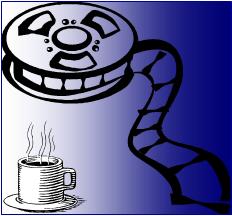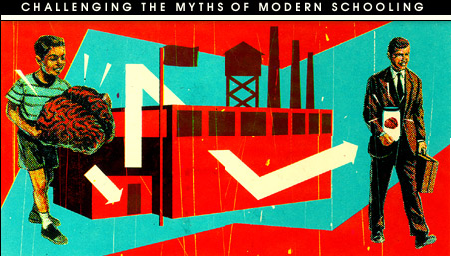

|
 |
The Spy Who Came in from the Cold
|
Please go to the new Coffee Coaster site implemented more gracefully in Wordpress. This page: http://brianrwright.com/CoffeeCoasterBlog/?p=5545 |
Richard Burton ... Alec Leamas
Claire Bloom ... Nan Perry
Oskar Werner ... Fiedler
Sam Wanamaker ... Peters
Rupert Davies ... George Smiley
Cyril Cusack ... Control
Peter van Eyck ... Hans-Dieter Mundt
Alec Leamas: What the hell do you think spies are?! Moral philosophers measuring everything they do against the word of God
or Karl Marx? They're not! They're just a bunch of seedy, squalid bastards like me: little men, drunkards, queers, hen-pecked husbands, civil servants playing cowboys and Indians to brighten their rotten little lives. Do you think they sit like monks in a cell, balancing right against wrong?
Basically for that quote... delivered with an Academy-Award-nominee eloquence by Richard Burton. If you click this link to his IMDb biography, you'll realize that not only was Burton the exact right man for the role of Alec Leamas, he was the exact right man to deliver that damning statement about the workings of state power... any state, in the concrete form of its nearly universally sordid functionaries. [Well, sordid in the realm of espionage, anyway.]
Simply traipse down to your local department of motor vehicles... or government school, or federal office, etc. How many government employees do you know—let's forget for the moment the several instances where there's some internal motivating espirit de corps, e.g. the Space Program, or a teacher who loves teaching, or a librarian who loves reading, a welfare worker who loves helping, and so on—that are thrilled and motivated to be taking care of you? Reminds me of that Lily Tomlin skit on Laugh-In: "We're the phone company and we don't have to care."
In 1965, the Cold War was heating up: Lyndon Johnson was pursuing the Vietnam War for his warlord-corporatist buds (after the CIA had gotten JFK out of the way), Malcolm X was assassinated and the Civil Rights Movement was being met with fierce police-state resistance in the south, US troops are sent to the Dominican Republic, CIA operations (in the name of anti-communism and for the actual entrenchment of international bankster power) are supporting the ravages of tyrants all over the world, and the US is detonating nuclear test weapons routinely.
Of course, the USSR is becoming increasingly an economic basket case... a veritable third-world country desperately trying to represent itself as a strong defender of the people against the ubiquitous warlord-corporatists running so many nations' real economies into the ground. Russia is a tired, old, dying police state. But the entrenched international banksters can't afford to let the USSR go under—they're deriving mammoth loan-interest payments from both sides (USSR police state vs. US-franchised Western warlord-corporatists) thanks to the arms race. The Cold War is indispensable for their continued $trillions of plunder of humankind.[1]
And that, ladies and gentlemen, is the short version of the true, non-baloney-stuff raison d'Ítre for the Cold War. The Cold War was (and the post-Cold-War "War on Terror" is) nothing more than a gargantuan welfare program for people who churn the war machinery—largely technical and educated, often brainwashed into blind hatred of the other side. A welfare program that the controllers have cleverly constructed to maximize the amount of loot heading from the tax-and-loan-paying class to the tax-and-loan-(interest)-receiving class—if you prefer images: from the base of the pyramid to the top of the pyramid.
In the case of the so-called intelligence services, what kind of individual is drawn there? Precisely the individual who will carry out orders and not ask too many questions, or if he does ask questions, is a smart fellow who can be used for more sophisticated chicanery... which is the essence of Spy. The point is, such people are gratified with the sense of being special (in a war context)... special to someone or something they blindly follow. And espionage is, after all, about war: conflict, fighting, killing other humans. This work enables little men (and women) to feel a kinship with grand military heroes, like Marcus Aurelius or George Washington.
Delusions of grandeur. Only Leamas is becoming disillusioned.
Also recall that 1965 was the era when James Bond movies were running away with box office records. The reasonably competent actor Sean Connery became a Cold War hero to the airheaded Western masses (who believed the Russians were 10-feet tall). Ayn Rand herself extolled the character, making "Bond, James Bond" a phrase emblematic of her "heroic man," one with genuine, rational self-confidence. [Admittedly, back in the day, especially in the earlier movies, Dr. No and From Russia with Love, I could suspend disbelief long enough to buy the phantasmagoric plots and sexually objectified women... and see a hero in cinematic Bond.][2]
You have to hand it to the producers—not to mention the writer John le Carré (whom I will definitely read now)—to go up against the iconic, living color, gets-all-the-babes James Bond with their black and white movie with all the romance of an avoid-the-clap training film. The chief emotional quality of the movie, aside from giving you a feel for how real English people live and shop in London, is depression. Kind of reminds you of 1984 (original version) without the explicit totalitarian system marching you hither and yon or putting rats in your soup.
But depression is too strong a word, I suppose. The movie has a realism that pins your ears back and opens your eyes; language is everything here, the use of English is extremely precise by all the players—even the ones set inside the Communist bloc nations. Loosely, the plot has Leamas (Burton), a presumably dissolute and discontent, formerly high-placed member of the Secret Service, pretending to defect to the East. In the early part of the film, coincidentally, he runs into Nan Perry, a librarian and cheerfully deluded, yet genuine communist.
Thanks to Turner Classic Movies, last night, Spy aired, and I was once again presented with the sort of movie Spy was going to be... and was intrigued. Much more so than I could have reasonably been expected to muster at 16 years old. I became drawn into the language and into the plot, the play of wits, I watched it as a grand chess match being carried on among four or five highly intelligent, highly placed gentlemen in competing intelligence services. Oskar Werner is a particularly impressive would-be adversary as the East German überspy whom Leamas has to satisfy about the reality of Leamas's defection.
Also, Claire Bloom plays her character with the legitimate innocence of a woman of idealism, who also wants to have a good man in her life. It's touching. She's touching. The deep psychological conflict arising from the relationship between Leamas and Perry makes the most hardened of us feel sad, as if seeing a kitten set down in a lions' den. The quote from Leamas above is toward the end of the movie, and sends up the perfect existential angst of the time... yet also a practical lesson for the ages:
"Everything the government [and the corporatists—ed.] touches turns to crap." — Ringo Starr
###
[1] Ref. G. Edward Griffin's masterpiece on the roots of the Federal Reserve, (and the rest of the international central-banking, government-monopoly system) The Creature from Jekyll Island and his expounding on the Rothschild Formula—which cultivates loans to both sides in perpetual wars among nations, to cash in royally... forever. [Or until an enraged and enlightened citizenry rises up and ends the con.]
[2] I'm 16 in 1965, and looking at the Bond women provides a certain amount of hormonal stimulation. And although I was sure whatever woman I married would have a figure at least as good as these celluloid babes, I felt a strange detachment from them; they seemed so, well, Stepford (artificial). The leading Bond ladies were much more "there." For the record, the best Bond leading women on screen, early days: 1) Diana Rigg as Tracy di Vicenzo in On Her Majesty's Secret Service, 2) Daniela Bianchi as Tatiana Romanova in From Russia with Love, and 3) Ursula Andress as Honeychile Ryder in Dr. No.


Click banner to
order, click here
for book review

Click banner to
order, click here
for book review
 |
 |
|||
| |